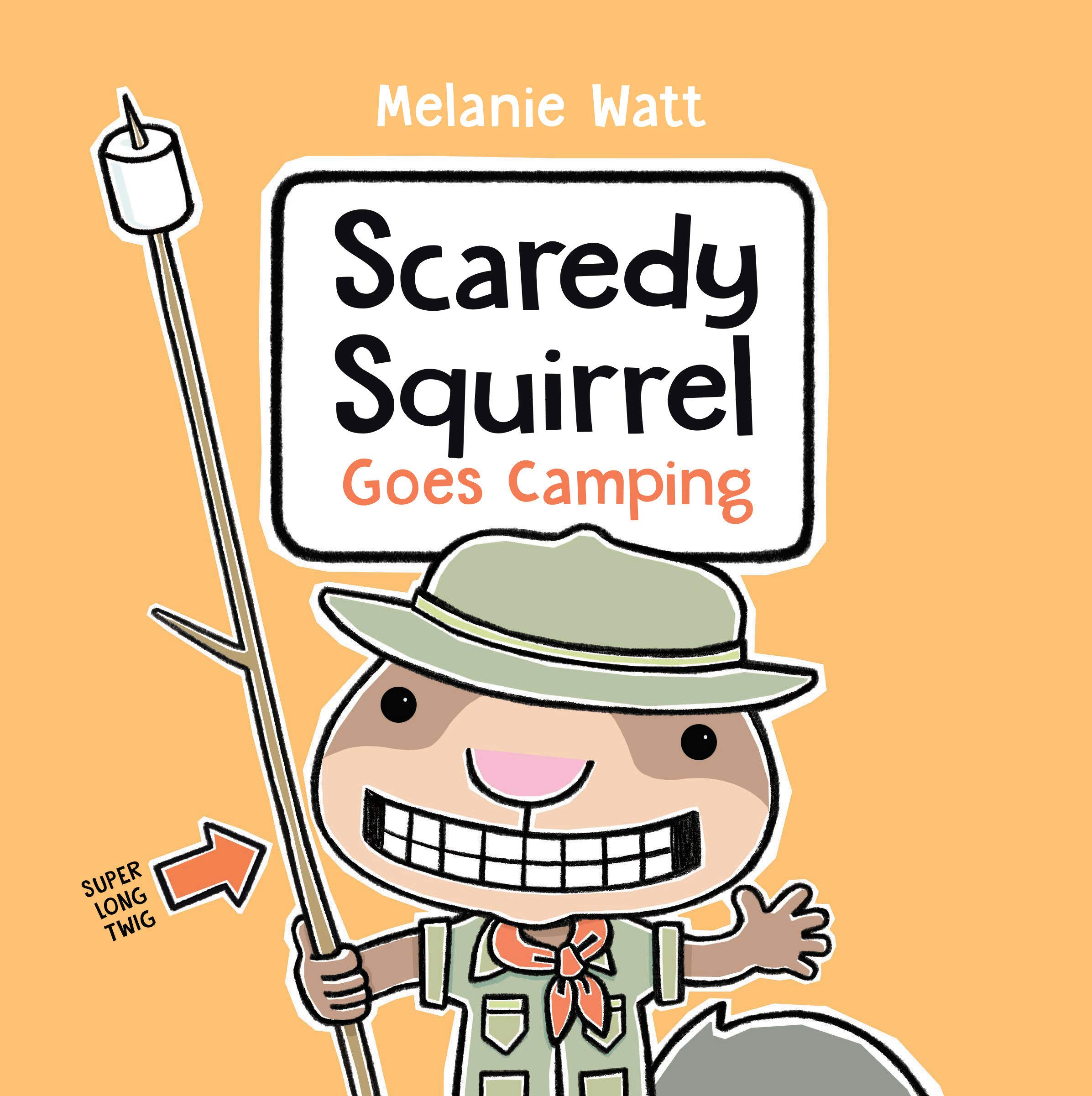Scaredy Squirrel is exactly the squirrel your child needs–a little bit anxious, a lot adorable, and totally lovable. He likes the safety of his nut tree, but not so much the great outdoors. And he’s about to go . . . camping?! Scaredy Squirrel is cool with camping . . . as long as he can do it from his couch! Who wants to deal with mosquitos, dirt, and wild animals when he can experience nature on his brand-new TV? Except–uh-oh!–first he has to plug it in, which means LEAVING HIS TREE! Luckily, Scaredy’s always got a plan. And he doesn’t realize he might just explore the great outdoors along the way. As young listeners see Scaredy face his fears in the silliest of ways, they gain perspective and courage, empowering them to tackle their own worries with a big smile.
This hilarious camping book can be used in speech therapy to address social/emotional issues like overcoming phobias and anxiety. It is also great for character analysis and for noticing text features and illustrations as well as for problem solving! Discover more of the speech and language teaching concepts for using Scaredy Squirrel Goes Camping in speech therapy below:



